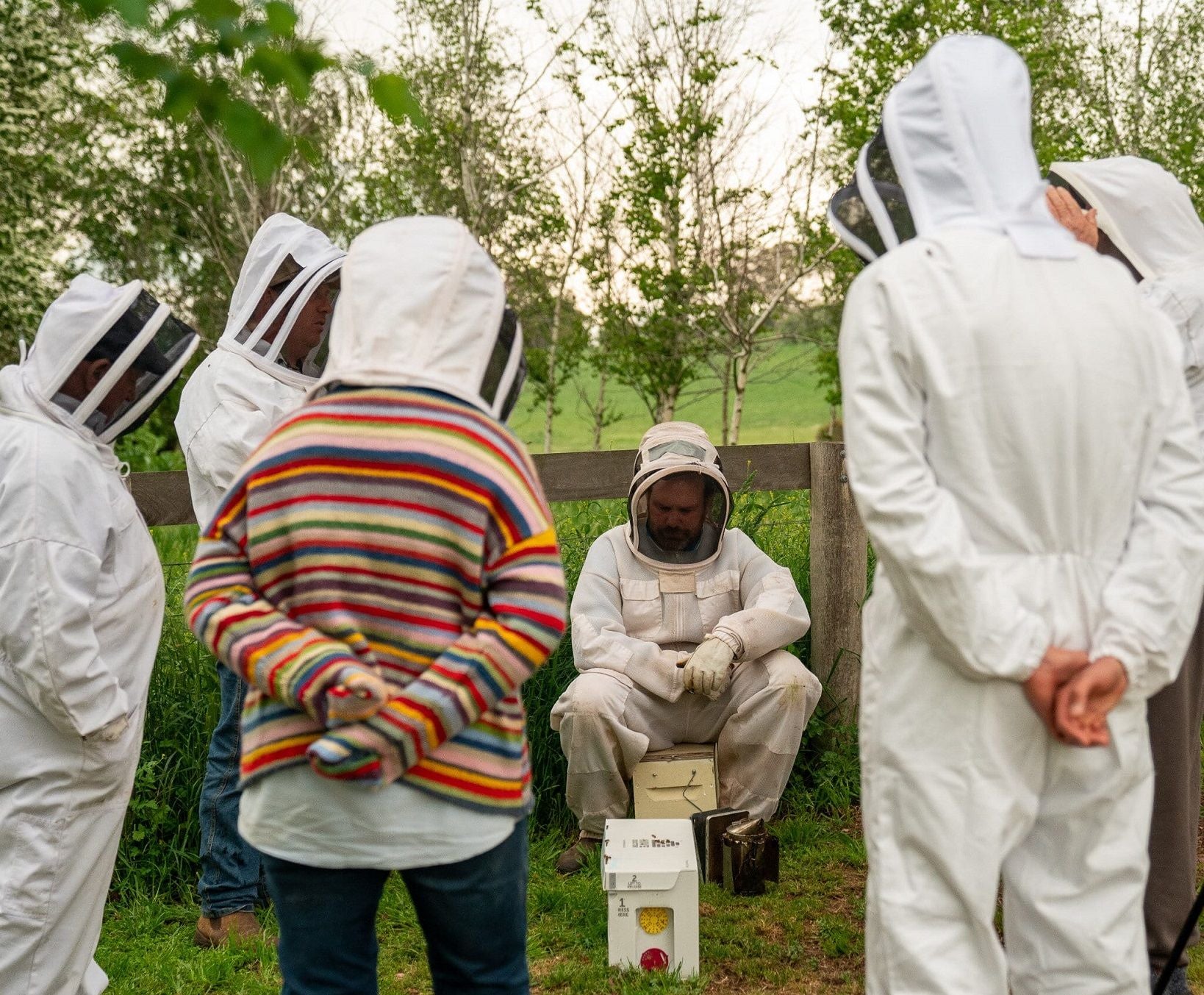Beekeeping 101: The Ultimate Beginners’ Guide
Beekeeping can feel overwhelming for beginners. Not only do you need to get the right beekeeping supplies, find a place for your hive and get your hands on some real live bees, you also have to meet regulations, get specific advice for your local area and learn how a colony functions. It’s almost enough to put you off before you even start!
The good news is, learning to be a beekeeper is not as complex as it might first seem. You’ll need to do some research, invest in some beekeeping gear and make some mistakes along the way, but it’s eminently doable – and the rewards make it well worth the effort. Once you’ve made it through the first year or two and harvest your honey, you’ll wonder why you ever worried!
The key to success in that first couple of years? Knowledge-building. The more you read, learn and observe about bees, hive maintenance, local conditions and regulations, the better you’ll do.
Ready to get going? Here’s our guide to our guides – a complete list of what you need to know, with links to detailed instructions and key info.
Local knowledge, local rules
Local support and knowledge are essential for new beekeepers. It’s important to know how local conditions can affect your hives, and it’s handy to have local contacts for advice, mentorship or just buying second-hand gear – joining a bee club is the simplest way to do this. It’s also essential to understand and follow the beekeeping rules and regulations for your area.
Learn the bee basics
It’s much easier to take care of a hive if you understand how it works. Bee colonies are complex social structures with set roles and a sequence of behaviour throughout the year.
- Find out what happens inside a hive.
- Learn about the different types of bee that make up a colony.
- Take a look at the anatomy of a bee.
Get the gear
You can’t start a hive without, well, a hive. Beekeeping requires quite a bit of gear in the beginning, although most of it lasts for years after the initial investment. You’ll need hives and hive accessories, safety gear for yourself plus tools to make managing your colony as easy as possible.
When to get started
Once you have the gear, you need to choose the right time to establish a hive. Bee behaviour follows a pattern throughout the year, so getting the timing right gives you the best chance of success.
Here’s why spring is usually the best time to begin.
Safety first
When you’re dealing with thousands of tiny, stinging creatures, safety is an obvious consideration – for you and your bees. That means wearing the right gear, thinking about your neighbours and other animals on the property and handling bees gently to minimise harm.
Find out more about safe beekeeping practices.
Setting up your hives
The next, most exciting step is setting up your hives and introducing the bees. It’s a relatively simple process, but it’s important to get it right to give your bees the best chance at success.
Checking for change
One of the key jobs for a beekeeper is regular hive checks. Check at least every two weeks to gather information on the behaviour of your bees, the health of the queen and signs of disease or infestation. With regular, thorough checks, you can catch most potential issues before they cause bigger problems.
Pests and disease
Unfortunately, invasive pests and diseases are a fact of life for beekeepers. If you know the most common pests, diseases and symptoms to look for, you may be able to treat and resolve potential issues before they cause serious damage to your colony.
Common invasive pests and diseases:
The honey harvest
The harvest is the satisfying payoff after a year of hard graft. Although many keepers don’t recommend gathering honey in the first year, at the end of summer in the second year you can give it a go.
Great gear and expert advice
Looking at all our beekeeping advice in one place is helpful – but it can also feel like a lot to take in. If you need gear, expert knowledge, or just a friendly word of advice, the Ecrotek team can help. We understand the ins and outs of beekeeping – including hives and gear, pests, diseases and confusing bee behaviour.
We’re always happy to help beginner beekeepers.Get in touch now.

